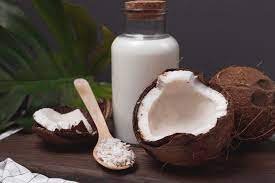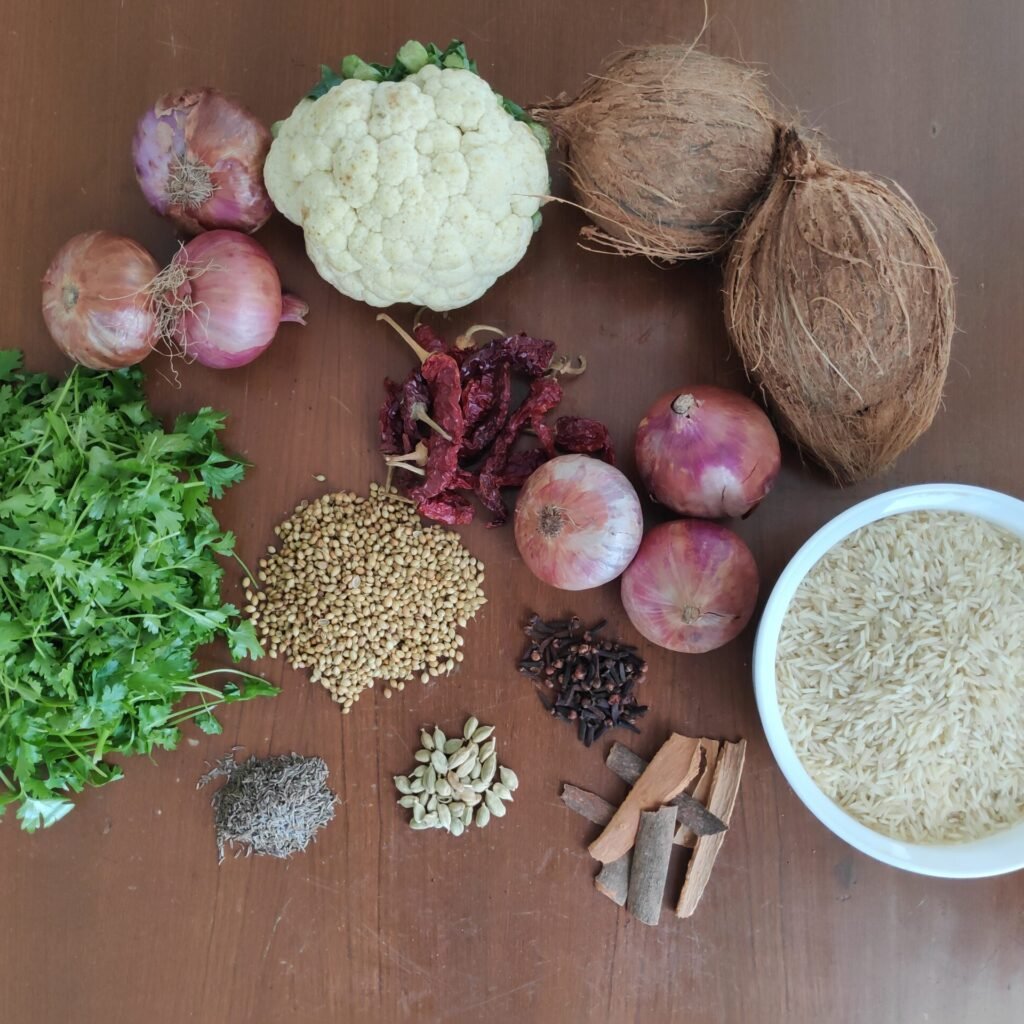
Coconut Milk
Coconuts are high in fat but equally high in fibre making it difficult to consume too much fat if eaten grated or sliced. Coconuts have been used in India for centuries and in both savoury and sweet dishes as well as in kachumbers or salads. The medium-chain triglycerides in coconut flesh are absorbed directly from the small intestine and used for energy. Coconuts are rich in manganese, which promotes bone health, have a good amount of copper and iron which are necessary for the formation of red blood cells, and selenium and phenolic compounds which may act as an antioxidant. Just watch out with the amount you eat as it is high in fat and so in calories.


